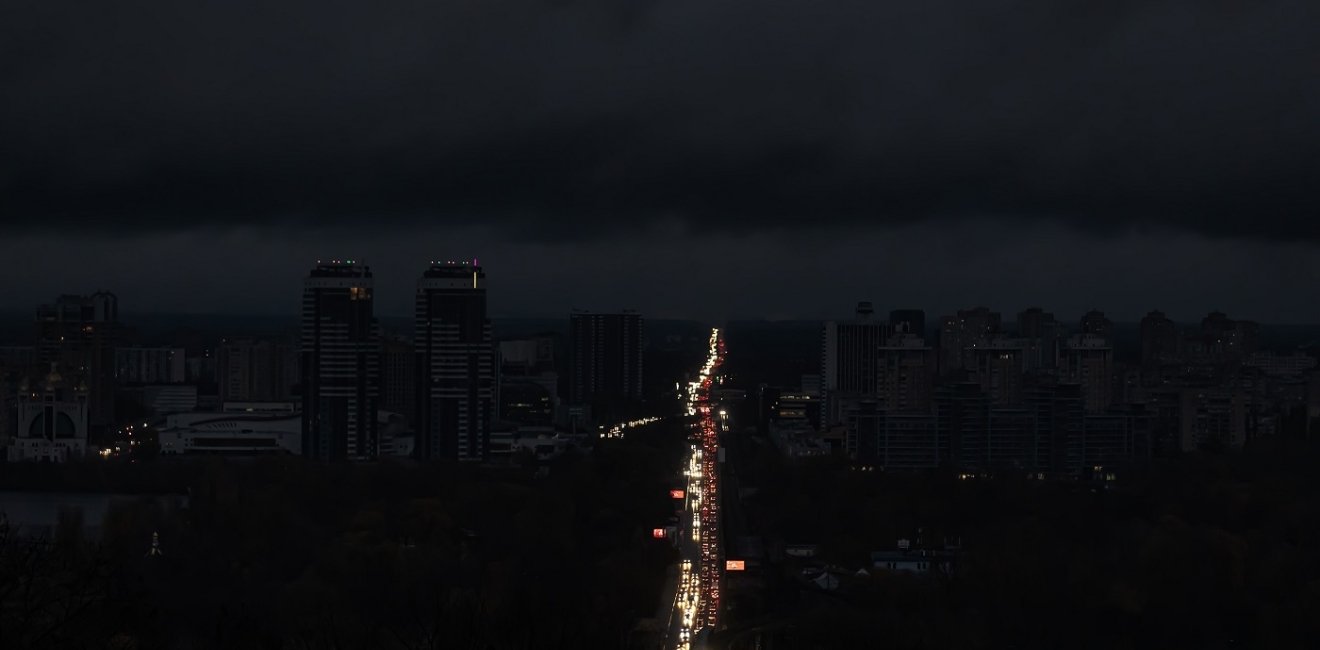
A blog of the Kennan Institute
Russian attacks on Ukraine have become more brutal in recent weeks. Incapable of victory at the front, the Russians have turned, as they have in numerous wars in the past, to a strategy of punish and destroy. The Russians have increased their bombardment of civilian targets, thinking they can pound Ukrainians into submission. Instead, Russian inhumanity has only increased Ukrainian humanity.
Ukrainians across the country have fallen back on one of humankind’s most elemental forms of expressing community and solidarity: they have begun singing. Perhaps the performances are not polished, perhaps they do not merit the attention of music critics. They are simple expressions of humanity, resistance, and resilience. They offer a powerful sign that Russia cannot win this war with bombs and drones alone.
Ukraine’s second largest city, Kharkiv, has suffered rocket attacks aimed at civilians throughout the war. Somehow, despite the intense shelling, the city continues to function. Those passing through a major intersection downtown as they gather the necessities of life might encounter Viktor. A gently eccentric, bearded pensioner, he perches on a building ledge surrounded by pigeons wearing a jaunty white cap, puffing on his pipe, and looking a bit like Santa Claus. He holds a hand-cranked music box on his lap, which he turns round and round as he greets passersby.
In hard-hit Mykolaiv, where the bombs fall at least nightly, an engineer named Pavel and his mates have continued to gather at Rock Hata, a basement bar. The club has continued despite air raids, blackouts, and a 9 p.m. citywide curfew. The tough-edged sound of rock provides a moment of shared solace each night. As they gather, Pavel and the others proclaim, through action and song, that Russia can never win.
Ukraine’s capital Kyiv has been hit harder and harder by drone and missile attacks, which have obliterated important water and electric facilities. As the lights go out, musicians set up in the streets, offering a wide range of musical genres. Perhaps they only play for themselves; perhaps a small audience forms in the dark around them. Such proclamations of humanity through song demonstrate a resilience undiminished by Russian bombs.
Ukrainian musicians have even taken to playing at the front. Street musician Moisey Bondarenko took his violin with him after signing up to fight. He began playing for himself during breaks in the fighting. A comrade in arms filmed him performing in an vacant field during one of these breaks and posted a video of his performance online, where it collected thousands of views and shares.
Spontaneous musical performances arise across Ukraine no matter how brutal the Russian onslaught has become. Music in a myriad of forms—folk, classical, rock; professional, amateur, and novice—continues to fill the Ukrainian air. Ukrainians, through their music, are proclaiming their steadfastness, their resistance, and their resilience.
The opinions expressed in this article are those solely of the author and do not reflect the views of the Kennan Institute.
Author

Former Wilson Center Vice President for Programs (2014-2017); Director of the Comparative Urban Studies Program/Urban Sustainability Laboratory (1992-2017); Director of the Kennan Institute for Advanced Russian Studies (1989-2012) and Director of the Program on Global Sustainability and Resilience (2012-2014)

Kennan Institute
After more than 50 years as a vital part of the Wilson Center legacy, the Kennan Institute has become an independent think tank. You can find the current website for the Kennan Institute at kennaninstitute.org. Please look for future announcements about partnership activities between the Wilson Center and the Kennan Institute at Wilson Center Press Room. The Kennan Institute is the premier US center for advanced research on Eurasia and the oldest and largest regional program at the Woodrow Wilson International Center for Scholars. The Kennan Institute is committed to improving American understanding of Russia, Ukraine, Central Asia, the South Caucasus, and the surrounding region through research and exchange. Read more

Explore More in Focus Ukraine
Browse Focus Ukraine
Talking to the Dead to Heal the Living

Ukrainian Issue in Polish Elections


